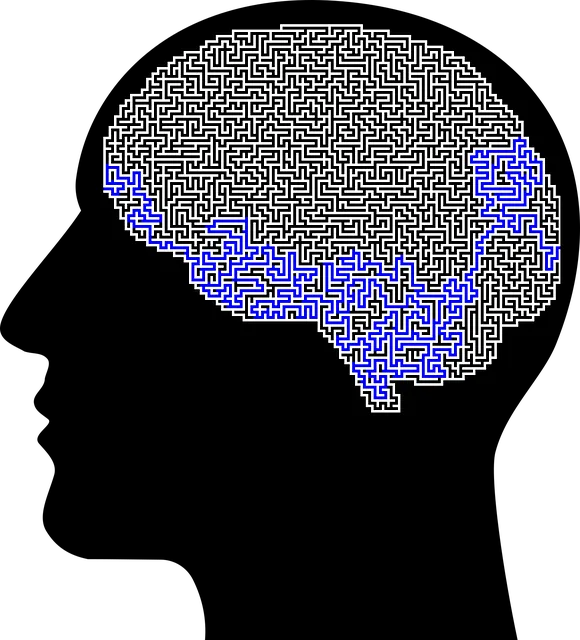The Greenwood Village Kaiser Permanente mental health access center prioritizes cultural sensitivity as a key component of effective treatment, offering personalized care that respects diverse backgrounds, beliefs, and healing practices. By integrating holistic methods like Mind Over Matter and Stress Reduction Techniques with empathetic communication, the center improves access to mental health services for all communities. This model emphasizes patient-centered approaches, continuous learning about different cultures, and incorporating traditional healing practices to create an inclusive environment where individuals feel valued and supported in their mental wellness journeys.
“Cultural sensitivity is a cornerstone of quality mental healthcare, ensuring equitable and effective treatment for all. This article explores this vital aspect through two primary lenses. Firstly, we delve into the concept of cultural sensitivity in mental healthcare practice, highlighting its importance in addressing diverse patient needs. Secondly, we present a case study of the Greenwood Village Kaiser Permanente Mental Health Access Center, showcasing innovative approaches to culturally sensitive care. Furthermore, practical strategies are offered for mental health professionals to enhance their practice and better serve diverse populations.”
- Understanding Cultural Sensitivity in Mental Healthcare
- The Greenwood Village Kaiser Permanente Mental Health Access Center: A Case Study
- Strategies for Practicing Culturally Sensitive Care in Mental Health Settings
Understanding Cultural Sensitivity in Mental Healthcare

Understanding Cultural Sensitivity in Mental Healthcare is a key aspect of providing effective treatment at centers like the Greenwood Village Kaiser Permanente mental health access center. In today’s diverse society, it’s crucial for healthcare professionals to recognize and appreciate the unique cultural backgrounds and beliefs of their patients. This involves understanding that mental health issues can be influenced and expressed differently across cultures, shaped by factors such as family dynamics, community norms, and spiritual practices.
By adopting a culturally sensitive approach, practitioners at the Greenwood Village Kaiser Permanente access center ensure that they offer tailored care. This means going beyond language translation services to truly grasp and respect patients’ cultural contexts. It involves incorporating Mind Over Matter principles and Stress Reduction Methods that resonate with diverse populations, promoting holistic healing while addressing specific mental health challenges.
The Greenwood Village Kaiser Permanente Mental Health Access Center: A Case Study

The Greenwood Village Kaiser Permanente Mental Health Access Center stands as a beacon of culturally sensitive mental healthcare practices. This innovative center has been instrumental in improving access to mental health services for diverse communities, demonstrating the power of inclusive care. By incorporating cultural considerations into every aspect of service delivery, from staff composition to therapeutic approaches, the center ensures that individuals from various backgrounds receive personalized support tailored to their unique needs and beliefs.
The Greenwood Village model emphasizes the importance of mental wellness as a holistic concept that transcends cultural boundaries. Through advanced mood management techniques and evidence-based therapies, coupled with empathetic communication strategies, the access center fosters an environment where patients feel understood and valued. This case study highlights the transformative potential of culturally sensitive practices, offering valuable insights for mental healthcare providers seeking to enhance their services and better serve their communities.
Strategies for Practicing Culturally Sensitive Care in Mental Health Settings

In mental healthcare settings, practicing culturally sensitive care is essential to ensure effective treatment and improved outcomes for diverse patient populations, reflecting the values and beliefs of Greenwood Village Kaiser Permanente mental health access center. Here are some strategies to achieve this:
Firstly, healthcare providers should engage in continuous learning about different cultures, including their unique expressions of mental distress and healing practices. This cultural competency training enables professionals to avoid assumptions and biases during interactions with patients from various backgrounds. Incorporating patient-centered approaches, where individuals feel heard, respected, and understood, is another powerful strategy. Tailoring treatment plans to align with the patient’s cultural context, values, and preferences can significantly enhance engagement and adherence to mental health interventions. For instance, integrating traditional healing practices or incorporating specific cultural references in therapy sessions may foster trust and a sense of belonging. Additionally, encouraging open conversations about cultural identity, beliefs, and experiences helps build strong therapeutic alliances, ultimately leading to better self-care routine development for better mental health and stress management within these diverse communities.
Cultural sensitivity is an indispensable aspect of mental healthcare, as evidenced by the successful model presented at the Greenwood Village Kaiser Permanente Mental Health Access Center. By incorporating strategies such as awareness training, adaptive assessment tools, and collaborative treatment planning, mental health professionals can navigate diverse cultural contexts effectively. This case study highlights the importance of cultural sensitivity in improving access to quality care for all communities, ensuring that every patient receives tailored, respectful, and compassionate treatment.





